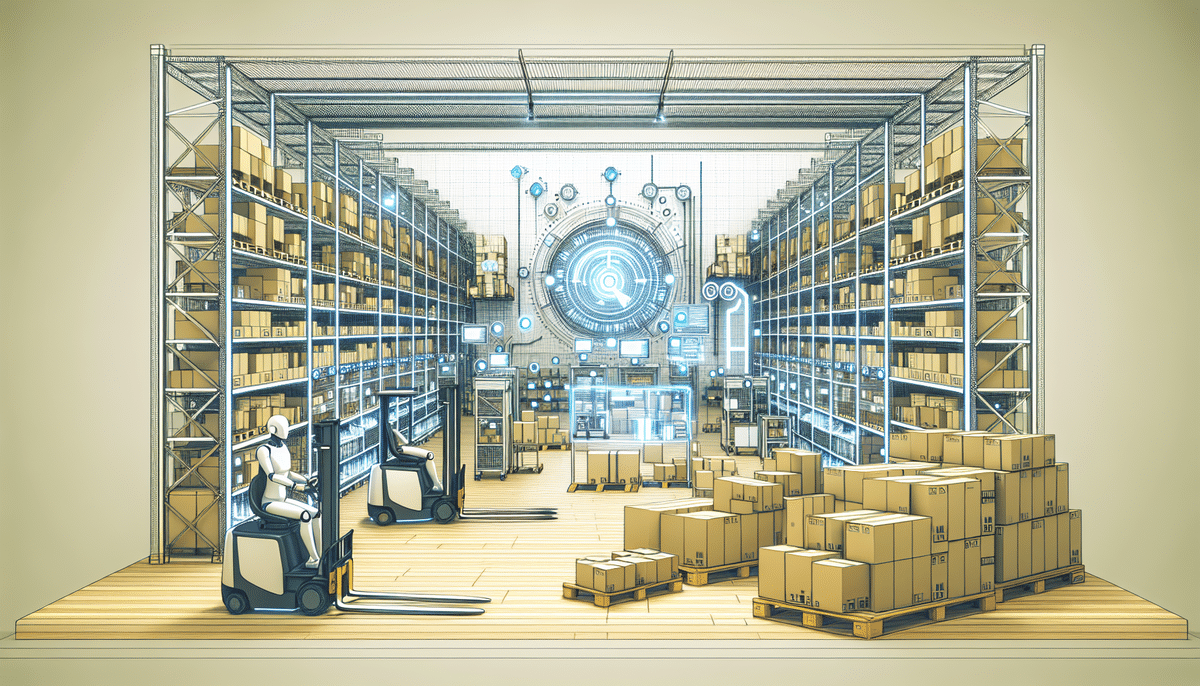Introduction to Pallets in E-Commerce Logistics
Pallets have long been a staple in the logistics industry, serving as essential tools for the movement and storage of goods. In e-commerce, their role is even more significant due to the high volume and variety of products handled daily. According to the Global E-Commerce Sales Report 2023, efficient logistics can reduce operational costs by up to 20%, with pallet usage being a key factor.
Key Benefits of Pallet Usage in E-Commerce:
- Streamlined Supply Chains: Facilitates easier movement of goods.
- Cost-Effectiveness: Reduces transportation and storage costs.
- Optimized Warehouse Space: Enhances vertical storage capabilities.
- Environmental Sustainability: Promotes reuse and recycling.
Benefits of Using Pallets in E-Commerce Logistics
How Pallets Save Time and Money
Implementing pallets in e-commerce logistics offers significant cost and time savings:
- Increased Productivity: Pallets allow for swift loading and unloading, reducing labor time and costs.
- Reduced Packaging Costs: By consolidating products on pallets, the need for excessive packaging materials diminishes.
- Reusability: Pallets can be reused multiple times, lowering long-term expenses.
- Efficient Space Utilization: Pallets can be stacked vertically, maximizing warehouse storage and reducing space-related costs.
Furthermore, effective pallet usage enhances inventory tracking. Grouping items on pallets simplifies stock counts and inventory management, mitigating the risks of overstocking or stockouts. According to the Warehouse Management Journal, businesses utilizing pallet systems report a 15% improvement in inventory accuracy.
Types of Pallets for E-Commerce
Wooden Pallets
The most commonly used due to their cost-effectiveness and versatility. Ideal for a wide range of products, though they may require more maintenance.
Plastic Pallets
Durable, hygienic, and weather-resistant. Suitable for industries requiring sanitation, such as pharmaceuticals and food.
Metal Pallets
Highly durable and suitable for heavy-duty applications. Often used in automotive and industrial sectors.
Cardboard Pallets
Lightweight and recyclable. Best for single-use applications and lightweight products.
When selecting pallets, consider factors such as durability, weight capacity, and environmental impact. Consult with logistics professionals or pallet suppliers to determine the best fit for your operational needs.
Best Practices for Pallet Handling, Storing, and Transporting
Handling
- Use appropriate equipment such as forklifts or pallet jacks to move pallets safely.
- Train staff on proper handling techniques to prevent accidents and product damage.
Storing
- Store pallets in a clean, dry environment to prevent deterioration.
- Organize pallets systematically to facilitate easy access and inventory management.
Transporting
- Secure pallets properly during transport to minimize movement and prevent damage.
- Regularly inspect pallets for damage and replace as necessary to maintain safety and integrity.
Regular maintenance and inspection ensure pallets remain in good condition, extending their lifespan and reducing the risk of logistical issues.
Environmental Sustainability of Pallets in E-Commerce
Reusability and Recycling
- Reusability: Pallets can be reused multiple times, reducing the need for disposable packaging.
- Recyclable Materials: Many pallets are made from recyclable materials, such as plastic and wood, minimizing waste.
Reduced Carbon Footprint
Efficient pallet usage optimizes transportation space, leading to fewer trips and lower emissions.
Adopting sustainable pallet practices not only benefits the environment but also enhances a company's reputation among environmentally-conscious consumers. Learn more about sustainable pallet practices from the GreenBiz Sustainability Guide.
Optimizing E-Commerce Operations with Pallets
Strategic pallet usage can significantly optimize e-commerce operations:
- Inventory Management: Pallets simplify tracking and managing inventory levels.
- Space Utilization: Efficient stacking maximizes warehouse storage capacity.
- Operational Efficiency: Streamlined pallet handling reduces processing times and labor costs.
Additionally, adopting innovative pallet solutions such as collapsible or modular pallets can further enhance operational flexibility and cost-effectiveness.
Future Trends and Innovations in Pallet Usage
The pallet industry continues to evolve with advancements aimed at improving efficiency and sustainability:
- Smart Pallets: Integration of RFID tags and IoT devices for enhanced tracking and inventory management.
- Eco-Friendly Materials: Development of pallets from sustainable sources like bamboo or recycled plastics.
- Modular Designs: Customizable pallet systems that adapt to varying product sizes and shapes.
Embracing these trends can help e-commerce businesses stay competitive and meet the growing demands of the market.
Conclusion
The use of pallets is a fundamental aspect of e-commerce logistics, offering numerous benefits including cost savings, operational efficiency, and environmental sustainability. By selecting the right type of pallets and adhering to best practices in handling, storing, and transporting, businesses can optimize their supply chain and enhance customer satisfaction. Additionally, staying informed about industry trends and innovations ensures that businesses remain competitive and prepared for future challenges. Incorporating pallets strategically into your e-commerce operations is a smart move towards achieving long-term success in the dynamic e-commerce landscape.






















